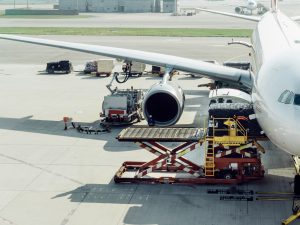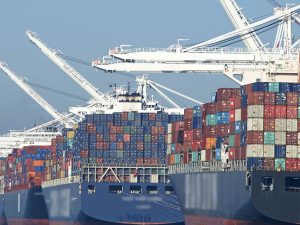Vipin Vohra, Chairman, Continental Carriers said, “Capacity constraints, regulatory inefficiencies, and infrastructure gaps continue to challenge air cargo growth. The lack of dedicated freighters, congestion at major airports, and high logistics costs impact supply chain fluidity. Inconsistent airport handling procedures lead to delays, while a shortage of skilled manpower affects operational efficiency. Additionally, the increasing tariffs levied by Cargo Terminal Operators (CTOs) add to cost burdens, reducing overall competitiveness and straining cost-effectiveness for logistics service providers.”
Read More »WAI’s 2nd Industry- Academia faceoff focuses on skilling, AI
After successful first edition, The Warehousing Association of India (WAI) in collaboration with The Great Lakes Institute of Management, Gurgaon, hosted the 2nd Industry-Academia Interface Conference on Logistics & Warehousing. After the inaugural lamp lighting ceremony, Manu Raj Bhalla, President, WAI, and Sanjay Gupta, MD & CEO – NCML opened the panel discussions as keynote speakers. With their deep industry expertise, they focused on the evolving landscape of logistics and warehousing, highlighting key trends, challenges, and opportunities. The conference featured thought-provoking discussions on automation and AI in logistics, the future of skill development, workforce transformation and the growing role of women in the warehousing industry. Designed to foster collaboration between industry and academia, this platform connected professionals , researchers, and students, providing invaluable networking and learning opportunities.
Read More »Aeroflot Airlines flags off export bonded trucking service
Aeroflot Airlines, being operated in India by Delmos Aviation (GSSA) jointly with Oscar Freight, Bonded Trucking Service provider & Zeus Air Services flagged off the first historical export bonded trucking operation from Mumbai ACC to GOX – Mopa in transit to Moscow – Russia. The Export Bonded Trucking movement started from Mumbai Sahar Air Cargo Complex on 5 March 2025. “It’s a proud movement for entire cargo Industry for having this facility started. We sincerely thanks Mumbai Customs and CSMIA ( Adani Group) for their valuable support,” said Raju Mehandarkar, Vice President – Cargo India, Delmos Cargo (Delmos Aviation).
Read More »Global air cargo demand up 3.2% in Jan 2025: IATA
According to the International Air Transport Association (IATA), total global air cargo demand, measured in cargo tonne-kilometers (CTK), rose by 3.2 per cent year on year (YoY) in January this year (3.6 per cent for international operations) for the eighteenth consecutive month of growth. Capacity, measured in available cargo tonne-kilometers (ACTK), increased by 6.8 per cent YoY in the month (7.3 per cent for international operations). “January marked 18 consecutive months of growth for air cargo, but the month’s 3.2 per cent YoY growth is a moderation from double-digit peaks in 2024. Similarly, yields, while still above January 2024 levels, saw a 9.9 per cent decline from December as cargo load factors also declined by an average of 1.5 percentage points,” said Willie Walsh, IATA’s director general. While external factors such as trade growth, declining fuel costs and expanding e-commerce remain positive for air cargo, it is important to closely watch the evolution of market conditions at this time. In particular, the wild card is the potential for tariff-driven trade policies from the US Trump administration. Fortunately, the air cargo industry is well practiced at dealing with shifts in the operating environment,” he noted. Asia-Pacific airlines saw a 7.5-per cent YoY demand growth for air cargo in January. Capacity increased by 10.9 per cent YoY.
Read More »Royal Enfield unveils new warehouse in Bhiwandi, Thane
Royal Enfield, the mid-size motorcycle segment under 250cc-750cc, has launched a new warehouse in Bhiwandi, Thane. The decision has been taken to ensure faster availability of genuine parts, ensuring top-notch service efficiency across western and central India. The new facility is about 45-KM from the Mumbai Airport and streamlines logistics and reduces aftersales service TAT to the RE network in the region. The company in its official release says that the strategically located facility will significantly reduce transit time for Spare parts, Oil and Lubes for customers in Maharashtra, Gujarat, Madhya Pradesh and Goa.
Read More »PMGS, NLP essential to reduce logistics cost to 8%: Joshi
“With the launch of the National Logistics Policy and the PM Gati Shakti Programme, we aim to bring down logistics costs from the existing 13-14 per cent to global standards of around 8 per cent,” said Pralhad Joshi, Food Minister, while addressing the CWC’s 69th Foundation Day. “The government aims to reduce logistics costs with the Central Warehousing Corporation (CWC) playing a crucial role in this nationwide transformation effort,” he added. “CWC, as a leading warehousing organisation, is poised to support these objectives through modern infrastructure development and efficiency enhancements,” The minister highlighted that CWC, established in 1957, has evolved into a dynamic logistics service provider with an extensive network of over 700 warehouses and an operational storage capacity of 148.29 lakh metric tonnes, an official statement said. The minister also hailed CWC’s successful asset monetisation at 18 locations, which mobilised an investment of Rs 820 crore under the government’s asset monetisation plan. He also commended the corporation’s efforts in improving operational efficiency, transparency, and accountability through digital initiatives.
Read More »Maersk to invest $5 billion in India’s trade and logistics
Looking at the country’s rapid growth and expanding infrastructure, Maersk is planning to invest $5 billion in India over the coming years. The announcement was made at a naming ceremony in Mumbai for its 11th dual-fuel methanol vessel, Albert Maersk, the first such event in India in over a century. Vincent Clerc, CEO, Maersk Global said, “There is a bright spot. And this bright spot is India that has hit a stride and where we are seeing an acceleration of the growth and acceleration of development.” For Maersk, this investment will primarily target terminal infrastructure and inland logistics to support the country’s booming trade and industrial expansion.
Read More »‘Last mile deliveries, drones, Electric Vehicle will boost growth’
Apeksha Gupta, Head- Skilling, VCJ Foundation said, “Logistics and express courier companies are revolutionising last-mile deliveries by leveraging advanced technologies like AI and route optimisation software. With e-commerce booming, the last-mile sector accounts for about 28% of total logistics costs. Companies are increasingly using electric vehicles and drones to reduce carbon footprints; for instance, Amazon plans to deploy 10,000 electric delivery vans by 2030. Enhanced tracking systems also improve transparency, with real-time updates boosting customer satisfaction by 25%.”
Read More »‘Blockchain impt innovation to control frauds risks & ensures data integrity’
Padma Handa, Director, Hans Infomatic said, “Recent advancements and tech innovations like platforms such as Hans Infomatic’s Cargo Community System centralise data exchange, enabling real-time tracking, predictive analytics, and seamless collaboration between stakeholders. This visibility at every stage enhances operational efficiency and customer trust. Blockchain further strengthens security by creating immutable, tamper-proof records for critical shipment documents, such as bills of lading and customs declarations. It eliminates fraud risks, ensures data integrity, and provides authorised stakeholders with secure access to verified information. By integrating these technologies, the industry achieves unparalleled transparency, reduced errors, and streamlined processes. The result is a more efficient, secure, and trustworthy air cargo ecosystem, meeting the demands of an increasingly digitalized supply chain.”
Read More »‘Implement environmental plans without compromising quality or performance’
Vandana Singh, Director of Global Corporate Key Account Management, Saudia Cargo said, “With growing emphasis on sustainability, the industry is expected to implement effective environmental improvements without compromising quality or performance. One key approach is optimising operational strategies, particularly in freight delivery. Leveraging advanced AI and machine learning can significantly enhance efficiency by analysing historical data, weather patterns, and air traffic conditions to determine the most optimal routes and flight plans. This data-driven approach helps reduce fuel consumption, lower emissions and improve overall sustainability. Beyond fuel efficiency gains through intelligent traffic management, decision-makers must also prioritise strategic planning to achieve long-term environmental and operational benefits. Air cargo businesses must navigate the dual challenge of maintaining efficiency while adopting environmentally sustainable practices to ensure timely deliveries.”
Read More » Cargo Breaking News
Cargo Breaking News








